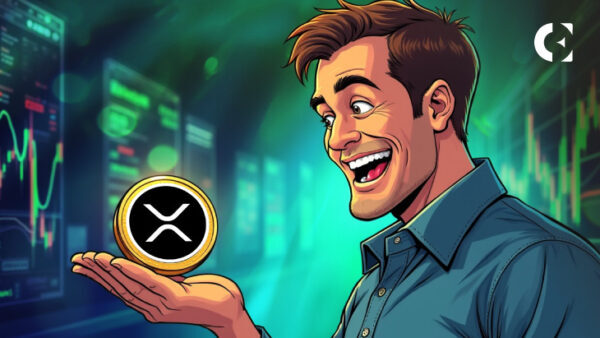- Bill Morgan says the SEC lacked evidence that Ripple built influencer networks to hype XRP.
- This comes amid debates over XRP’s strong market presence compared to Chainlink’s, despite its partnership with SWIFT.
- XRP supporters argue that the token’s value reflects real-world adoption.
A lawyer and pro-XRP advocate who closely followed the SEC v. Ripple case, Bill Morgan, has dismissed claims that Ripple orchestrated a network of influencers to promote XRP. He said that if the SEC had evidence of such activities, it would have been central to the case.
“The SEC had nothing to show the court about hype or promotional activities directed to programmatic and secondary market buyers,” Morgan argued, pointing to court filings.
The judgment confirmed that Ripple’s promotional documents, including the “Ripple Primer” and “Gateways” brochure, were shared mainly with institutional buyers, not retail traders on exchanges.
Chainlink and SWIFT Announce Blockchain Ledger
The renewed debate comes after Chainlink highlighted SWIFT’s latest endeavor in blockchain. Speaking at Sibos 2025, SWIFT said it will launch a blockchain-based ledger to extend its global financial messaging network.
Chainlink highlighted the announcement as validation of its role in helping banks connect to blockchain networks through oracles while using existing infrastructure.
The partnership builds on more than seven years of collaboration between Chainlink and SWIFT, including digital asset trials and cross-border transaction pilots.
Following the SWIFT news, questions about market valuations resurfaced on X. Market analyst Dave Weisberger asked why XRP’s market capitalization is more than ten times greater than Chainlink’s, despite Chainlink’s institutional partnerships.
For context, XRP currently holds a market cap of $170.9 billion compared with LINK’s $14 billion. Over the past 24 hours, XRP saw $4.9 billion in trade volume, significantly higher than Chainlink’s $641 million.
“Activating Network of Influencers as Marketing Strategy”
Some critics argued XRP’s popularity is driven by organized promotion rather than institutional adoption. One user pointed to Ripple documents that referenced building and activating a network of influencers as part of its marketing strategy.
However, Morgan emphasized that none of this was proven in court, and programmatic buyers were not shown to have been targeted by Ripple’s campaigns. He believes Ripple may have lost the case if the SEC were able to establish that the company paid influencers to promote XRP.
XRP supporters countered that the token’s value reflects real-world adoption, with higher trading volumes and usage on the XRP Ledger compared to Chainlink.
Disclaimer: The information presented in this article is for informational and educational purposes only. The article does not constitute financial advice or advice of any kind. Coin Edition is not responsible for any losses incurred as a result of the utilization of content, products, or services mentioned. Readers are advised to exercise caution before taking any action related to the company.







